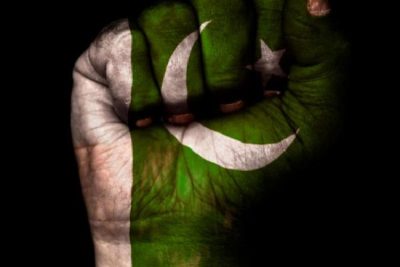Pakistan Just Broke Free from the West’s Post-Colonial Neo-Imperial Chains

All Global Research articles can be read in 51 languages by activating the “Translate Website” drop down menu on the top banner of our home page (Desktop version).
To receive Global Research’s Daily Newsletter (selected articles), click here.
Visit and follow us on Instagram at @globalresearch_crg and Twitter at @crglobalization.
***
The US-led West quite clearly took Pakistan for granted and continued to condescendingly view the country as their ‘junior partner’ or even still as their ‘vassal state’, which is why so many of their envoys in Islamabad unsuccessfully demanded that it publicly condemn Russia despite that undermining the South Asian state’s national interests.
Pakistani Prime Minister Imran Khan just proudly flexed his country’s strategic autonomy by condemning those Islamabad-based Western envoys that earlier demanded that he publicly condemn Russia for its special military operation in Ukraine. By rhetorically asking, “What do you think of us? Are we your slaves … that whatever you say, we will do? I want to ask the European Union ambassadors: Did you write such a letter to India?”, he broke the West’s post-colonial neo-imperial chains over Pakistan.
Pakistan abstained from the UNGA vote on Ukraine alongside around three dozen other non-Western countries, including India, both of whom are impressively pursuing the same policy of neutrality in the New Cold War despite being decades-long rivals. While India is well known for its prior policy of Non-Alignment and its post-Old Cold War one of Multi-Alignment, Pakistan hadn’t previously formulated its foreign policy in such a way, which speaks to PM Khan’s impact on reshaping its grand strategy.
Russian-Pakistani relations are mutually beneficial, aren’t aimed against any third parties, and jointly aim to fulfill their complementary grand strategies of integrating the Eurasian continent with a special focus on the Central Asian space between them. Russia’s Greater Eurasian Partnership (GEP) relies on Pakistan’s new policy of geo-economics in order to be successful and vice-versa. These former Old Cold War-era rivals have quickly become close partners due to their many bilateral and multilateral interests.
The US must be shocked by this since it’s always mistreated Pakistan as a “junior partner”, so much so that critics within that South Asian state became concerned that their country had at one time even transformed into America’s “vassal state”. PM Khan has been outspoken about prior administrations’ subservience to other states at the expense of their own’s interests, which explains why he immediately set to work to correct Pakistan’s foreign policy course as among his top priorities in office.
To be absolutely clear, “Closer Russian-Pakistani Relations Aren’t Aimed Against America Or India”, they’re aimed at mutually beneficial goals that run the gamut of jointly containing Afghan-emanating security threats and implementing PM Khan’s passionate anti-poverty policies, among many others. Third parties like the US-led West should applaud this ambitious vision but regrettably view everything through the outdated perspective of zero-sum politics.
They quite clearly took Pakistan for granted and continued to condescendingly view the country as their “junior partner” or even still as their “vassal state”, which is why so many of their envoys demanded that it publicly condemn Russia despite that undermining the South Asian state’s national interests as explained. By proudly standing up to them and defying the pressure put upon Pakistan, PM Khan showed that his country isn’t anyone’s puppet, which is comparable to a foreign policy revolution.
It’s also perfectly in line with the principles enshrined in Pakistan’s new National Security Policy (NSP), which was formulated in consultation with a broad array of experts over several years. PM Khan therefore isn’t acting unilaterally or in any “rogue” fashion like some of his critics at home and abroad might claim by refusing to have his country publicly condemn Russia, but is acting in full accordance with Pakistan’s NSP that represents its national interests as determined by its most capable experts.
Observers should pay close attention to the example that Pakistan is setting for other Global South states, particularly Muslim-majority ones and those that have a history of close ties with the US. PM Khan is showing everyone that it’s possible to defend one’s own national interests in the face of massive Western pressure, which is similar to what the UAE is also doing as well, along with Turkey and a few others. This trend that’s quickly taking over the “Ummah” suggests how much US influence is in decline.
America should never impose zero-sum policies on anyone, let alone its historical partners like Pakistan. There was a time where its unipolar hegemony was uncontested but that period is long over. Washington can no longer get whatever it wants from others whenever it wants. Pakistan’s brave stand in breaking off its post-colonial neo-imperial chains is a powerful flex of its strategic autonomy and will result in ultimately unleashing more of its geo-economic potential with time.
*
Note to readers: Please click the share buttons above or below. Follow us on Instagram, @globalresearch_crg and Twitter at @crglobalization. Forward this article to your email lists. Crosspost on your blog site, internet forums, etc.
This article was originally published on OneWorld.

